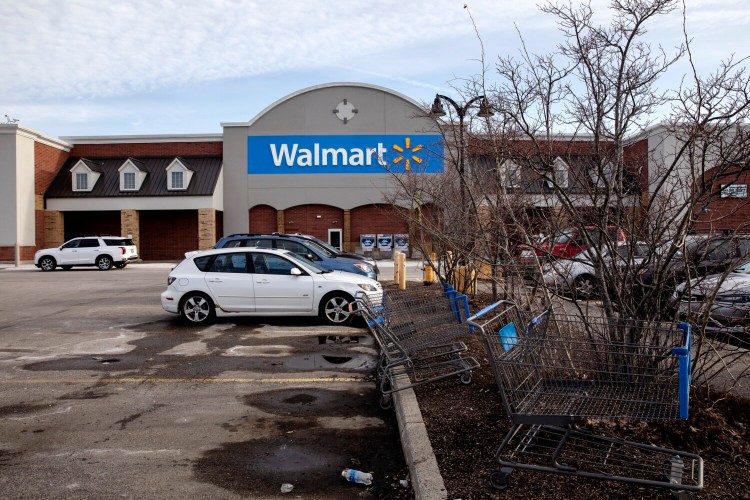A bill advancing in the Legislature would limit the ability of big box stores in Maine to use the so-called “dark store theory” to challenge property tax evaluations, a maneuver that results in the loss of hundreds of thousands of dollars in municipal tax revenue.
The bill to keep big retailers from claiming that their stores are worth much less than their town and city assessments cleared the House 77-55 last week and is expected to be voted on in the Senate this week.
Retailers use the “dark store theory” in bids to lower their property taxes. It’s a practice that began about a decade ago, primarily in the Midwest, in which large retailers appeal their assessments, arguing that their properties are worth far less than town and city assessments because the value should be based on a comparison with other large, but empty, stores nearby.
“The theory? These facilities are fundamentally useless to any other business and should therefore be assessed as empty or dark stores,” Rep. Ann Matlack, D-St. George, told the Taxation Committee earlier this year. Matlack is the chief sponsor of the legislation that would curb the practice by spelling out what kind of property assessors should use as comparisons when they set valuations.
A similar bill was introduced last year, but with the Legislature operating under a pandemic-shortened schedule, the legislation was never taken up, Matlack said.
Matlack said she saw the theory in practice in her part of Maine, when a retailer operated a big box store in Rockland and then moved to a larger one in Thomaston. The retailer appealed the higher tax appraisal in Thomaston, saying the property’s value should be based on comparisons to the values of vacant stores, some of which had limitations on the size of businesses that could operate in them.
Matlack said the retailers also base their appeals on the belief that the towns will retreat when faced with large legal bills over the contested assessments.
“The towns feel outgunned,” she said, and sometimes back down and roll back the assessments rather than face a long and costly court battle over the valuations.
“This dark store theory is (in operation) all over the country, and it happens far too regularly,” she said.
A message left for Walmart was not returned Monday.
Matlack’s bill would reiterate that towns and city’s should base assessments on a property’s highest and best use. It also would say that assessments can’t be based on comparisons to any properties that have restrictions on them.
A report on “dark store theory” by the Maine Center for Economic Policy said that when a big box retailer moves to a new location, it often puts restrictions on the businesses that can move into the space they own but are leaving behind. That’s so that the original retailer doesn’t face competition from another large retailer that buys the space, but it also results in a lower value for the property.
The center’s report said retailers “dark store theory” has been mostly successful in the Midwest, particularly in Michigan, where assessors and courts have upheld the valuation arguments of the retailers. An association of county governments in the state estimated that valuation appeals based on the theory cost local governments $100 million in tax revenue over four years.
SHIFTING COSTS TO TAXPAYERS
The report by the Maine Center for Economic Policy said that large retailers in Maine sought $184 million in lower valuations from 2015 to 2019, and the average reduction sought was 34 percent. Successful valuation appeals resulted in assessment reductions of 2 to 30 percent, the report said, with the average settlement resulting in a reduction of 8 percent.
That means less money for towns’ budgets, and the municipalities either need to reduce services or shift the cost to other taxpayers, the policy center said.
The organization has urged lawmakers to make some simple fixes to property tax valuation procedures to eliminate or limit the use of the dark store practice to cut property tax bills.
“Simple legislative language to clarify which properties can be used in the price analysis during assessment will ensure that these large retail corporations can’t game the system at the expense of communities and other property taxpayers,” MECEP’s report concluded.
Matlack said her bill will make sure that retailers are paying their fair share of taxes, based on honest assessments of the value of the properties. That, she said, would restore fairness to property taxes.
“I told a friend who’s a lawyer about it and they said, ‘They can’t do that,’ but I said, ‘They are doing that,'” Matlack said.
Send questions/comments to the editors.





Comments are no longer available on this story